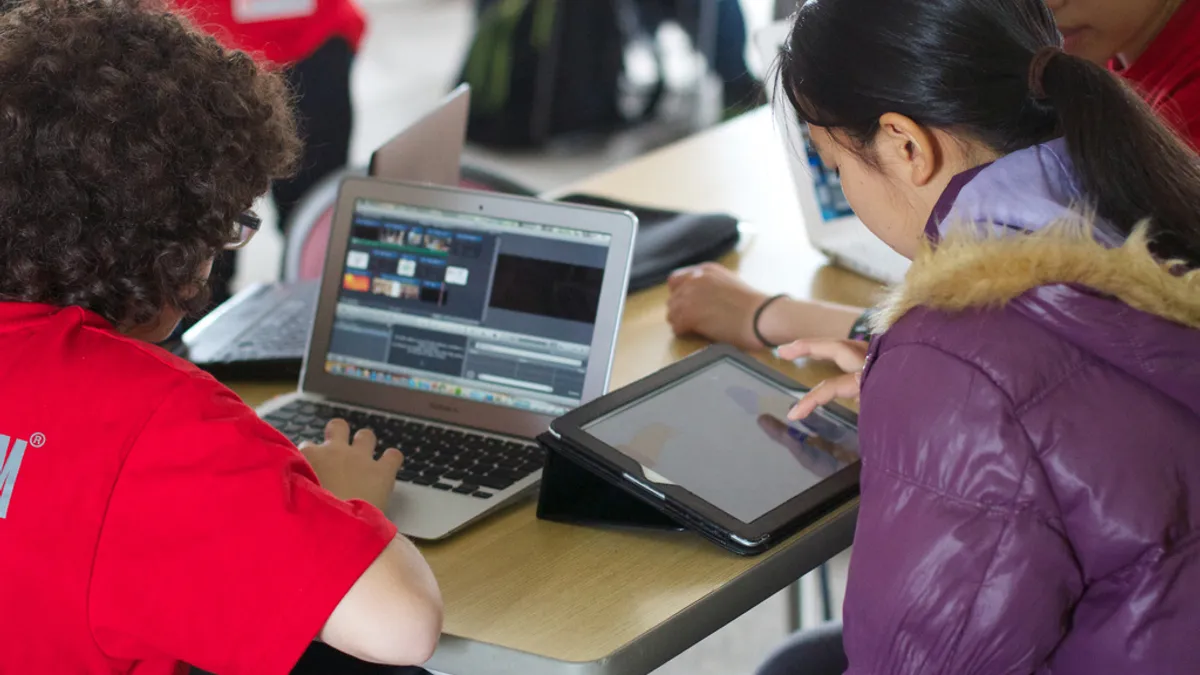Dive Brief:
- At Stony Brook School in Westford, Massachusetts, the use of project-based learning across multiple subjects in the 6th and 7th grades is not a remedial effort or for extra credit, but is designed to excite students while also teaching them higher-order thinking skills, explains a story in The Hechinger Report.
- Not all middle school students are part of the project-based learning program, but teachers report that students who are involved show a deeper understanding of subjects that they’re learning.
- Teachers are also given some autonomy by the school’s principal, and are allowed to decide when students may need more time on one subject than another. That may mean spending extra days on science or English language arts to ensure they are meeting standards.
Dive Insight:
Project-based learning can be more engaging for students than a lecture and make it easier for educators to demonstrate how a topic — in any subject — is applied in the real world.
Stony Brook's teachers send students' project-based work to outside groups, as the article mentions, which has helped children see how their assignments have relevance in the real world. For administrators looking to put project-based learning into practice at their schools or in their districts, it's important to be clear with parents about the expectations for project-based learning, perhaps sharing in advance how students will be assessed. Administrators also should ensure teachers receive guidance and support to keep teachers from feeling overwhelmed and getting burned out.
For example, successful project-based learning projects can require significant time to create, adding to requirements educators already must complete, such as grading, providing small group lessons and keeping up with responsibilities outside of the classroom. Supervisors should be aware of this increased demand on educators, and ensure teachers have the resources they need so these projects can succeed.
Project-based learning, however, can bring benefits in addition to the deeper learning and engagement students enjoy. It can also help to foster self-regulation and self-management, skills that can equip students for better success in the real-world.













